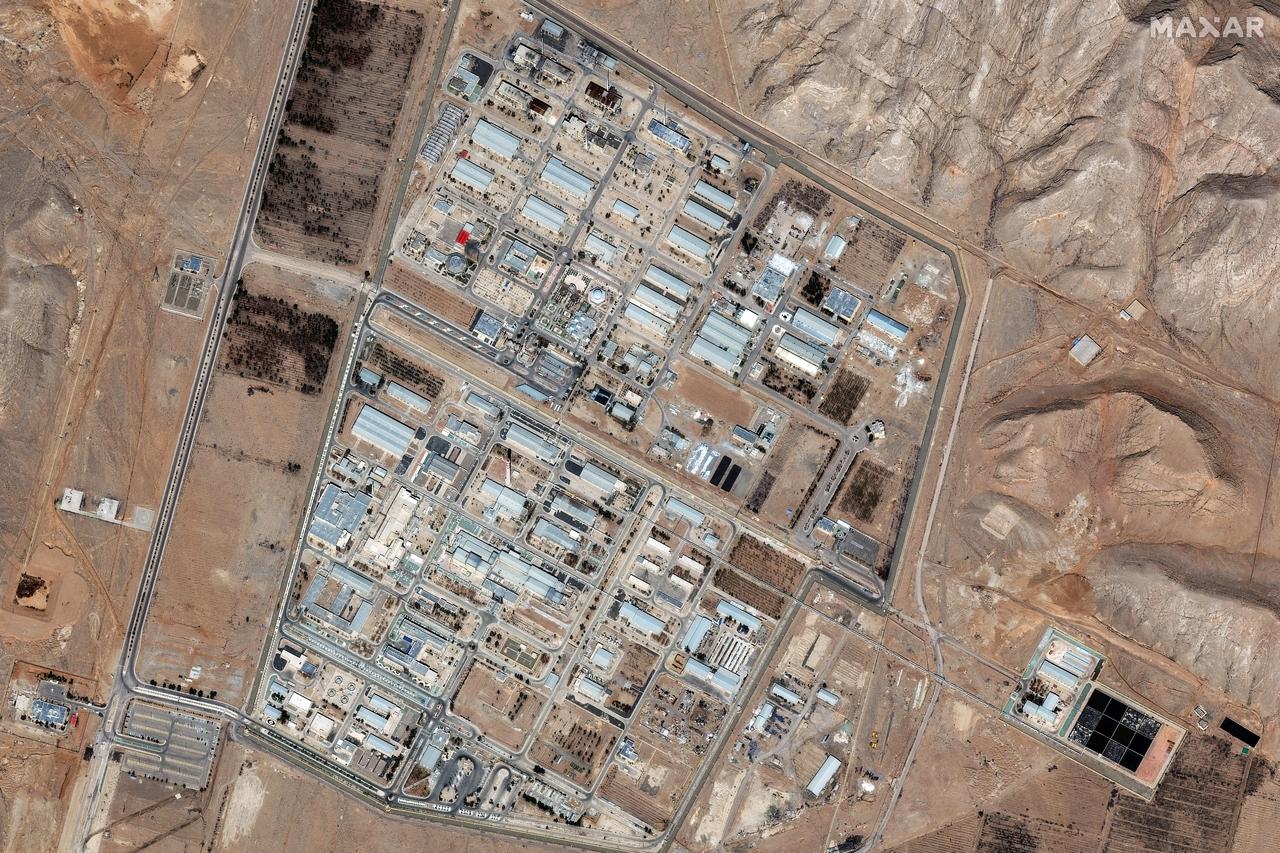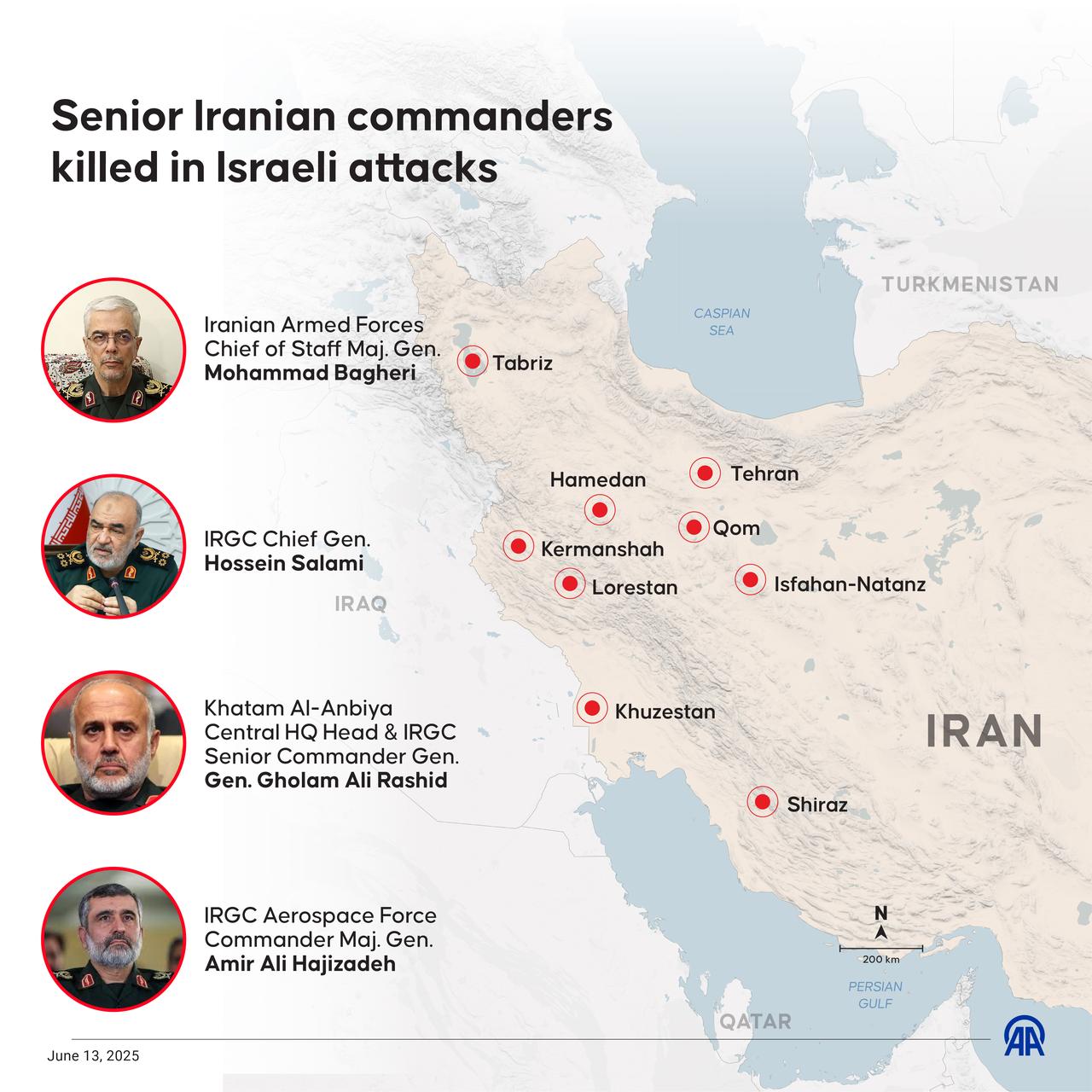
Turkish Foreign Minister Hakan Fidan met with Defense Minister Yasar Guler, Chief of General Staff General Metin Gurak, and National Intelligence Organization (MIT) Chief Ibrahim Kalin to assess Israel's air strikes on Iran and discuss potential implications.
The high-level security meeting took place at the Foreign Ministry headquarters starting at 2:30 p.m in local time, according to Turkish Foreign Ministry sources.

Türkiye has taken measures, including the cancellation of flights to certain countries, after Israeli airstrikes on Iranian nuclear and military facilities, Transportation Minister Abdulkadir Uraloglu said
"As a result of the air strikes launched by Israel against Iran in the early morning hours of June 13, 2025, the airspaces of Israel, Iran, Syria and Iraq were temporarily closed to air traffic due to increased security risks in the region," Uraloglu said on social media.
"In line with the developments, the necessary measures have been taken by our Directorate General of Civil Aviation and relevant airline companies, and flight routes have been re-planned to avoid using risky airspace," he added.

The officials evaluated the process that began with Israel's airstrikes on Iran and examined possible ramifications for the region, sources said. The meeting comes as Türkiye monitors the escalating situation following Israel's comprehensive military operation against multiple Iranian cities.
Israel launched pre-dawn strikes on numerous Iranian cities, including:
No radiation leaks were reported at the Natanz nuclear facility. A spokesperson for Iran's Atomic Energy Organization (AEO) said on Friday that nuclear contamination was detected inside the Natanz nuclear facility, Iran's largest nuclear site in central Isfahan province, following an Israeli missile strike.
Behrouz Kamalvandi, speaking to Iran’s state television, said Israel fired missiles at the Natanz facility several times to reach deep underground.
“Some contamination was detected inside the facility, but this contamination did not spread outside the facility,” Kamalvandi clarified. The nuclear contamination in question is not alarming, he added.
Iran's AEO also noted that most of the damage from Israeli air strikes targeting its underground uranium enrichment facility at Natanz was at ground level.
"Most of the damage is on the surface level," said Kamalvandi, adding that there had been "no casualties" at the facility where the enrichment centrifuges are housed underground.

The strikes resulted in significant casualties among Iran's military leadership:

Civilian residential areas in Tehran were also hit, with reports of numerous civilian casualties including women and children. Israeli Prime Minister Benjamin Netanyahu confirmed the attacks, stating operations would continue "until the threat is eliminated."
Israeli Defense Minister Israel Katz announced a state of emergency in Israel.
The Israeli military confirmed that more than 200 fighter jets participated in the strikes, with unmanned aerial vehicles also deployed in the operation.